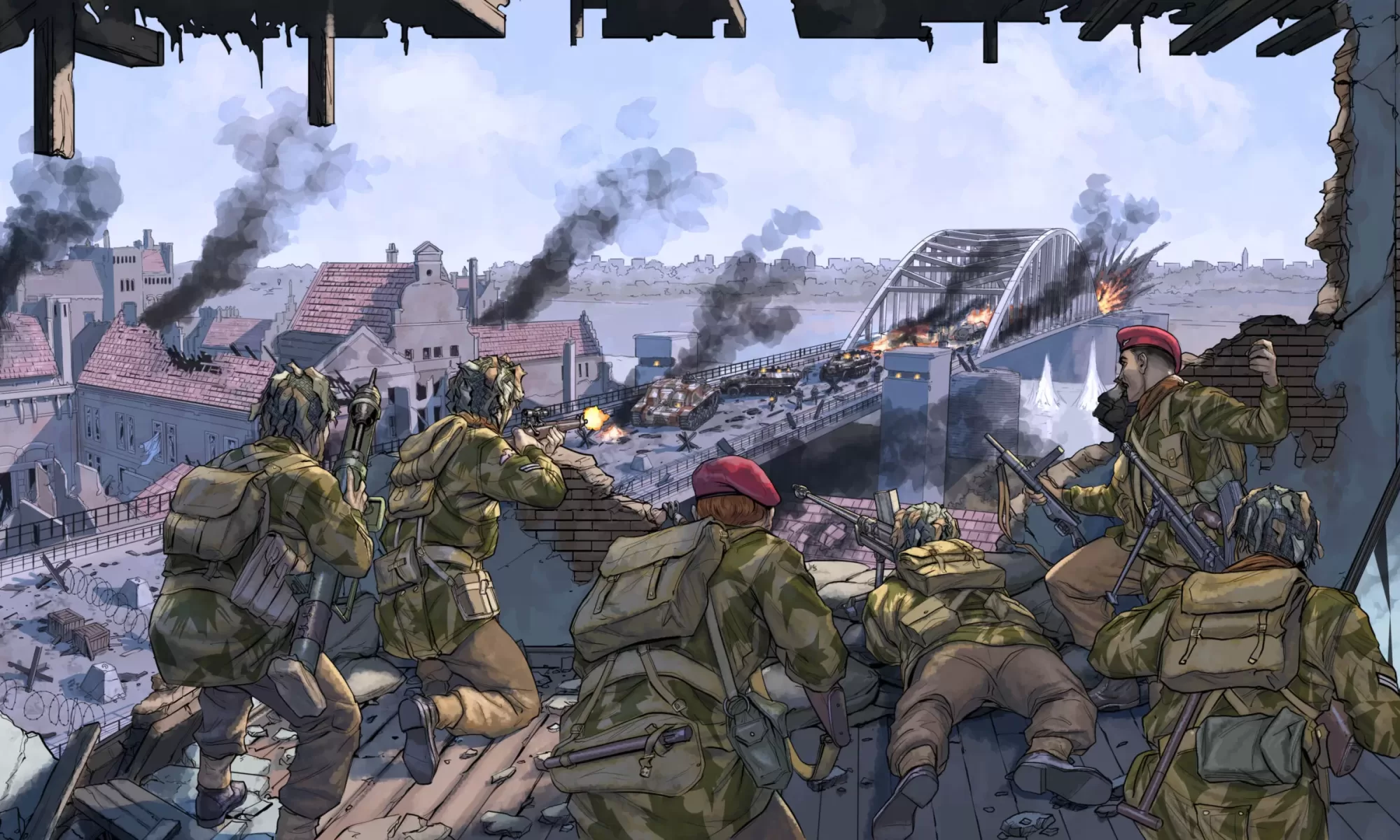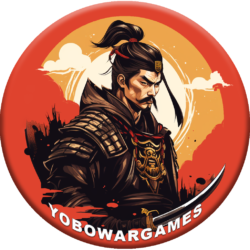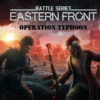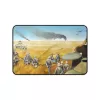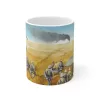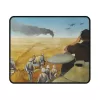Two years ago I setup Yobowargames and work in my spare time as a solo Indie developer. Since I also have a full-time day job I would classify myself as a hobbyist indie developer but, where possible, adhering to business principles. In that time I have released two games with another about to launch and currently working on my fourth game.
My games are targeted at a niche strategy wargame market that I know well as a consumer and now as a software developer. I use Libgdx and develop using Android Studio. By using Libgdx I can produce games in Java that run on PC, Android, and iOS with very little additional work needed between the three of them.
I set myself a three-year goal with the following objectives.
Year 1 – Produce and publish my first game.
Year 2 – Produce more games and build a small following
Year 3 – Produce a larger more advanced game that makes money
The purpose of this article is to provide some updated statistics and things I have learned in the first two years.
Facts and Figures
My first game Kursk – Battle at Prochorovkawas greenlighted by Steam in Feb 2017, moved into alpha and then officially launched in July 2017. As it was my first game I was very nervous about doing any marketing in case the game was not well received. So apart from my blogs I did zero marketing and did not send it for any reviews. My wife was so worried about it failing that she was secretly planning to purchase the game so I had at least one sale.
My second game, Battle for Korsun, was launched at the end of October 2018. This time I did send the game out to a couple of reviewers and one of them did a favorable review. In addition, the game was picked up by a few other bloggers or YouTubers who I had not contacted.
My third game, Invaders from Dimension X, will launch in January 2019 with the support of the original board game producer, Tiny Battle Publishing.
Below Are my main sources of revenue in 2017 and 2018. The biggest difference between 2017 & 2018 is that itch.io has proven to be a fairly valuable source of crowdfunding for a new game I am working on – Valor & Victory.


Below are unit sales for Kursk – Battle at Prochorovka since launch. The peaks are Steam sales. This covers almost 2 years of sales. I only discount 25% during sales and did no discounts in the first year. I might sell more if I did a heavier discount and will try that in the summer sale. Launching my second game led to more sales for this, my first, game. My games have a long tail with this game earning 40% of total gross income in year 2.

This next chart shows sales by region for Kursk – Battle at Prochorovka. This game is only available in English.
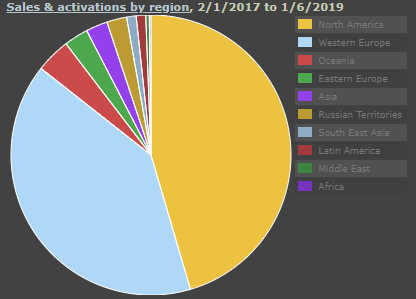
This next one shows sales by region for my second game, Battle for Korsun, which I did localize into French, Russian, Chinese, Spanish and German. This has led to a slight increase in sales in China but seemed to have little to no effect elsewhere.
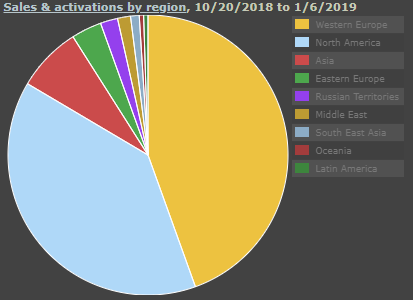
Financially I have recouped the costs of making the first two games and financed the cost of the next 2 games. However, do note I do not charge for my time spent on these games and could not seriously think about making this a full-time vocation.
Things I have learned
- Engagement and investing time with your target audience will be rewarded. I regularly search Google to see if anyone has written about my games. This can be on forums, blogs or YouTubers. Where I can I will respond to forums and thank bloggers or YouTubers – regardless of whether they liked my games. I reply to every email I receive and respond, where appropriate to Steam discussions and reviews. I now have a small following/community that is looking forward to my next game. Their feedback has helped me focus on areas that are important to them.
- Having a plan and applying business principles, even as a hobbyist, provides focus and a framework. With planning, I am able to avoid scope creep and a least have a rough idea of what to work on and for how long. By running on business principles I keep a tight budget on expenses. The only business principle I don’t follow is charging for my time. At the moment my time is an investment that I hope will be repaid with bigger success down the line.
- Paying for experts is better than trying to do it (badly) yourself. I am not an artist so 90% of my artwork is done by contract graphic artists. I have been lucky so far that I have found people who will work at a rate I can afford and produce good work that has resonated with the market I am focused on.
- Quality is important. I focus a lot on the quality of my games. I was lucky that I found someone who loves testing and together with my own testing very few bugs are found in my games. With each release, I have improved more as I get feedback and learn more while developing.
- Know your market. I did a lot of research and continue to do research on my market. I joined all the relevant Facebook groups, followed relevant twitters and monitor the forums of other similar games companies to see what people like and dislike. I dissect other similar games and look to see how they implemented features I struggle with and to gain ideas and follow best practices.
- PC remains the number one market for my type of games. iOS remains a secondary viable sales vehicle for a premium game such as mine. Android is a non-starter for a premium game – at least in my experience.
- Steam has proven to be a great marketplace for someone like me that is very focused on a niche market. Itch.io has proven to be a great place for me to provide developer builds of my next game and act as a small source of crowdfunding income.
- Maintaining a website and writing blogs on things I am working on has been very influential in being taken seriously when approaching others for help or when looking for contractors. It has also led to some unexpected contacts that have proven useful in discovering others doing the same as me or wanting to share information.
- I suck at marketing. However, I cannot afford to pay someone to do it for me. This year I will hopefully be using publishers for my games. While they will take a cut from my games I hope to learn a lot from them on how to market a game.
Summary
I have learned a lot in the last two years and consider it time well spent. This year will be the real test as I never expected to make any money in the first two years. Covering all development costs has been a bonus.
